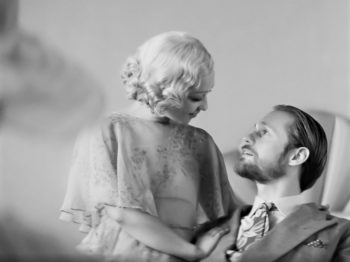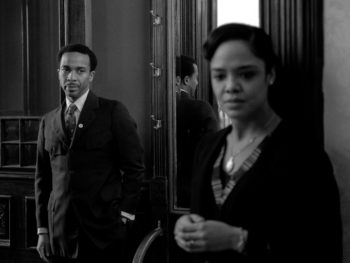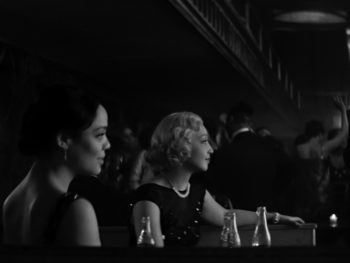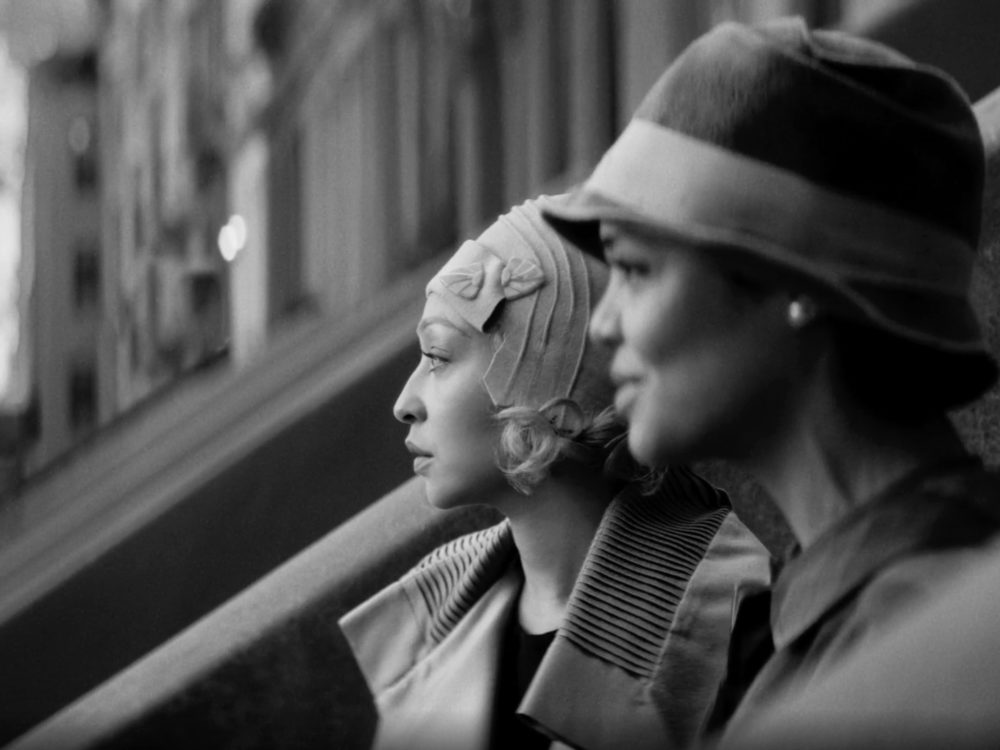Premiering on Netflix, November 10, “Passing” tells the story of two Black Women who can “pass” as white but choose to live on opposite sides of the color line during the Harlem Renaissance in 1920s New York. The film stars Tessa Thompson and Academy Award-nominated actress Ruth Negga. Adapted from the 1929 novel by Nella Larson and directed by Rebecca Hall, who also adapted the screenplay, “Passing” is a poignant examination of the realities faced by some black Americans who lied about their identity to protect their constructed realities.
Passing as white for some was a means of escaping slavery. Escaped slaves who could pass as white found safety in perceived whiteness as they were less likely to be caught and returned to plantations. Many mixed-race blacks often “passed” to escape slavery and their white masters, many of whom were fathered by them. After the emancipation proclamation and through the period of Jim Crow, those who were able to pass as white used it as an opportunity to get a job, travel, or attend school. It was a method to avoid segregation laws. Passing in some circles was seen as a means to better themselves in a world that rejected and vilified blackness for others; it meant rejecting one’s culture, family, and ethnicity.

In “Passing,” Ruth Negga plays Clare, a white-passing woman who has completely assimilated into white culture. She’s married to a white man, John, played by Alexander Skarsgard, and has even given birth to a child. Despite her husband’s apparent disdain for black people, Clare seems content in her white world until a chance meeting with an old friend triggers a longing to return to her community and cease living a lie. Clare lives in constant fear of being exposed and desires the freedom to live her life authentically. She becomes obsessed with the life of her friend Irene, played by Tessa Thompson.
Irene is a light-skinned black woman who chooses to “pass” when it serves her, such as shopping in white areas for a toy for her son or dining in establishments for white people. She’s married to a black man with two black children. To Clare, Irene is living the ideal life, but as the film progresses, we learn all that glitters is not gold in Irene’s home.
As Clare becomes more and more obsessed with being included in Irene’s black world, she becomes less careful in disguising her black identity, at times seeming willing to risk it all for the freedom to exist as a black woman in society. Director, Rebecca Hall, has a close connection to the film and novel as her maternal grandfather, who was black, lived his life as a white man for most of his life.
“There had always been vague talk about my grandfather being Black, and passing for white, although it was never framed that way. He was light-skinned; he married a Dutch woman, lived in a white neighborhood, and raised his children as white. I never knew him. He sadly passed when my mother was a teenager, and a lot of the answers to these questions went with him. At some point, I got a bit more inquisitive about trying to pin down the facts. It was made clear that yes, my grandfather was Black and was white-passing most of his life.

I mentioned all of this to a friend of mine, and he suggested I read Passing. The feeling I had at the time was just this shock of recognition. I knew these characters and knew them in a way that I found confusing. I finished the novella and started writing the script almost immediately in some sort of attempt to get to grips with that feeling. Over the years, I think what I’ve come to is that even though I am a person who presents as white, and as such doesn’t experience the day to day pressures of being black in this country, I am also a person who grew up in a family that has been shaped indelibly and painfully by the legacy of racism, in particular the legacy of racial passing. In the end, I decided that I needed to make this film both because of where I come from as a filmmaker and also because making this film is my way of reaching back into my own family with compassion, generosity, and love towards those who formed their identities in a world that feared and despised them.”
“Passing” brilliantly captures 1920s Harlem in black and white, which seems intentional considering the film’s subject matter. However, we learn racial identity isn’t always black and white, and the grass is not always greener on the other side.
The more Clare intertwines herself in Irene’s life, the more jealousy and envy rear their heads on both sides, with Clare envious of Irene’s black life, black husband, black children, and Irene jealous of Claire’s ability to capture the attention of many, including those in her social circle and of her husband.
Ruth Negga was fascinated by the idea of passing, saying, “I was familiar with the concept of passing in American life, but it was seen from the “tragic mulatto” point of view. It was interesting to see it from the point of view of a black writer. I heard these stories about these people who chose to disappear themselves, often from necessity and sometimes from want. To think that they thought they could have a better life if they disconnected from their family, culture, and color. I found it fascinating because it deeply troubled me that it would have to be a choice for some people.”
“Passing” challenges notions of racial identity, a theme relevant today. The irony of how times have changed is not lost on me as I watched “Passing.” “Blackness” is now cool and is often appropriated by white people instead of blacks attempting to pass as white to obtain upward mobility and a better social standing in society. With people like Rachel Dolezal, who was “outed” after discovering she was a white woman “passing” as black to influencers and celebrities who are often accused of appropriating blackness by mimicking black hairstyles, speech, and even tanning and bronzing their skin to appear darker, the nuances surrounding black identity and culture are a hotly debated topic. As the quote says, they want our rhythm but not our blues. Today’s “black passing” or culturally appropriating individuals wants the style and swag black cultures bring but want to avoid the realities that black people face dealing with racism and systematic oppression.

Tessa Thompson says releasing this film at this moment in time is relevant. “It’s wild that we should have made this movie at a time when as a society, we are inside these kinds of works, really trying to content with some of the questions that they ask. We’re at a time when folks are rightfully thinking we need to talk about the value and dignity of black life in the streets and communicate it into policy but also create opportunity in terms of storytelling”.
Netflix’s “Passing” is a beautiful and tragic depiction of the cost of living a life filled with deception. Tessa Thompson and Ruth Negga masterfully portray two women who are two sides of the same coin, each battling and fighting for the freedom to live their lives authentically and the costs associated with doing that. Actors Andre Holland (Brian), Bill Camp (Hugh), Antoinette Crow-Legacy (Felise), Gbenga Akinnagbe (Dave), and Alexander Skarsgard (John) round out an impressive cast.
“Passing” is a thought-provoking, powerful, and artful film that will inspire conversations and debates about racial identity in American. A Definite must-see.
“Passing” is currently in theaters and will be available for streaming on Netflix, November 10.
Danielle Sanders is a journalist and writer living in Chicago. Find her on social media @DanieSanders20 and @DanieSandersOfficial.




